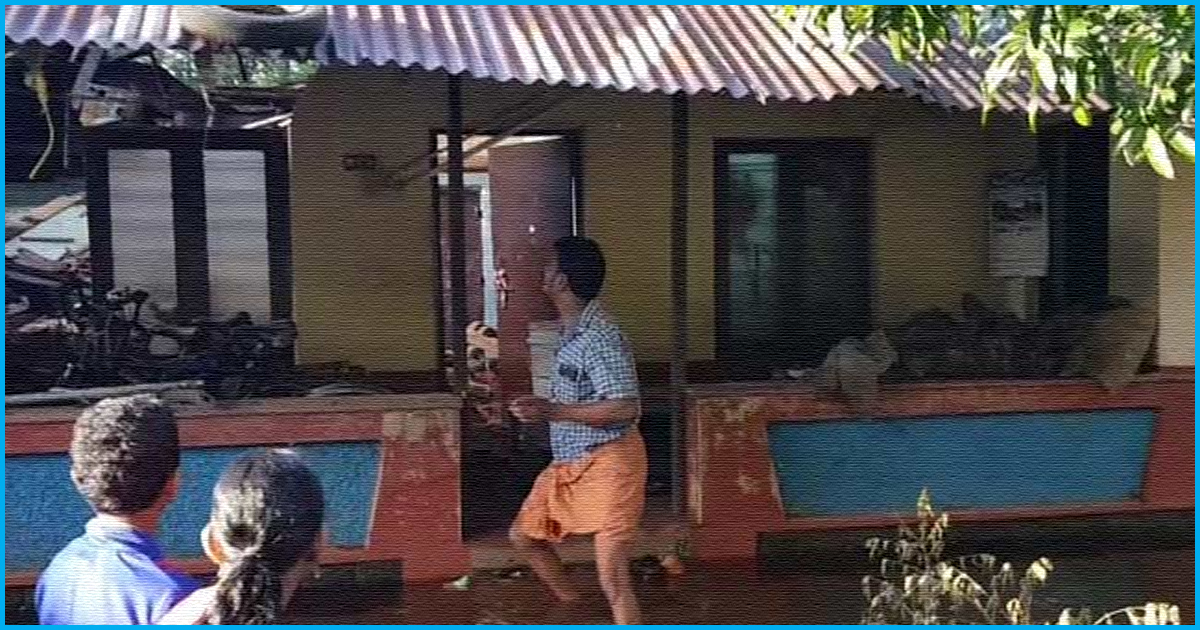
Kerala Floods: Precautions To Take While Returning Home After Floods
24 Aug 2018 12:22 PM GMT
Editor : Ankit Sharma Sharma
Green tea Addict | A Tree Hugger | Born for Change
In the aftermath of the state’s worst floods since 1924, with the flood waters now beginning to recede, Kerala now faces the arduous tasks of rebuilding the state, rehabilitating its citizens and preventing the outbreak of diseases.
The National Disaster Management Authority (NDMA) has issued instructions and tips for the flood victims to help navigate their way back to their homes. Kerala based Manorama magazine also released a list of do’s and don’ts for the same.
Here is a short video that explains what to do after floods.#KeralaFloods2018 #KeralaFloods #KeralaFloodReliefs pic.twitter.com/DgMMb8aV5r
— PIB India (@PIB_India) August 21, 2018
Food Safety
Do not eat any food item that has been in contact with flood water- only eat freshly cooked food. Fruits must be consumed after thoroughly washing them with clean water and removing the peel. Do not consume unpasteurized dairy products; look for tetra packs of milk for children.
Cook food only after washing your hands with soap- or an alcohol-based hand sanitizer with at least 60% alcohol content, as recommended by CDC. Clean and disinfect cooking and eating utensils thoroughly with hot water and use detergent if they’ve been in contact with the flood water.
Throw out any food that has spoilt, even what has been kept in the refrigerator if the power has been out for more than one day. Take care while opening the fridge, like rotten food (especially non-vegetarian) may produce dangerous gases like methane which can exit with force.
Clean Water
Drink only boiled water. Chlorine can also be used to disinfect water as explained by NDMA. Chlorinated water is safe to drink, and is recommended by the Directorate of Health. In case there is no drinking water available, collect rainwater and filter it before drinking.
#KeralaFloods #KeralaFloods2018 #MadhyaPradesh #Bhopal #Rajasthan #KarnatakaFloods pic.twitter.com/blqWMBZG7K
— NDMA India (@ndmaindia) August 23, 2018
In extreme situations when there are no options available, use a folded clean thin white cotton cloth to filter water. It’s better to have some filtration than none.
Keep yourself hydrated with ORS solutions or coconut water. One can even make their own ORS solution by adding six teaspoons of sugar and half a teaspoon of salt to one litre clean, boiled water. This is extremely important to prevent diarrhoea and dehydration.
Check to see if the water coming from taps or flushes in toilets is muddy or clean. Do not use the taps and toilets in case muddy water is present, or water pipes/sewer lines are broken.
Wash your hands with clean water and soap as many times as you can- before and after cooking and eating, after using the toilet, before and after caring for the ill, after clearing garbage, etc.
Before Entering Your Home
All movements should be made in daylight when things are still visible; do not venture out after sundown. Do not go out alone, take 2-3 people with you that may help in case of a sudden emergency. Do not take children with you.
Everything will be soaked in water, which means even cement structures can collapse- be careful and refrain from using too much force to open bloated wooden doors that may have gotten stuck.
Do not touch a dead body- be it human or animal- with your bare hands. Wear a mask, or tie a towel around the mouth and nose; thick gloves are also recommended.
Go inside only after opening the windows to let the fresh air inside- don’t stay long if there is a foul smell. Keep the main power switch off, and do not use any candles or smoke cigarettes- there may be a gas leak in the house. Make sure the LPG cylinders are off as well.
Be on the lookout for reptiles like snakes and crocodiles that may have taken shelter inside cupboards, under the bed or even the attic.
Stay Vigilant
Do not let children play in the flood water. Steer clear of electric poles and broken wires, and do not park your vehicles near trees close to electric power lines. Avoid using any electrical appliances or switches until a licensed electrician has checked them- even the appliances that seemingly look okay may be damaged, increasing the risk for electric shock.
Flood water contains sewage and pathogens that may cause water-borne diseases. It is highly advised to clean and disinfect anything that has been in contact with the flood water. Thorough cleaning of one’s surroundings with chlorine disinfectants is also highly recommended. Wear covered footwear, and treat any cuts- even the smallest of scratches- with antiseptics.
Diseases
According to Times Now, the Directorate of Health Services, Kerala has already recorded 846 cases of dengue fever, 1,91,945 cases of the acute diarrhoeal disease, 518 cases of malaria, 34 cases of chikungunya and 225 cases of leptospirosis (infection from animals).
The NDMA has advised using mosquito nets to prevent malaria. Times Now advises to wear protective clothing and using DEET-containing insect repellent on exposed body parts. People are also advised to keep an eye out for common signs and symptoms, including fever, chills, diarrhoea, vomiting and abdominal pains, to detect a disease before it gets worse. Seek medical help as soon as possible if you fall ill, or show any concerning symptoms.
The Logical Indian take
The Kerala government is gearing itself for a series of initiatives in the next 30 days for cleaning, waste disposal and disease prevention, including super chlorination of potable water sources in flood-affected regions.
Outbreaks of vector-borne and water-borne diseases are common after floods- the need of the hour is to prevent an outbreak of any infectious disease in the various relief camps across the state. The Union Health Ministry has also started setting up various medical camps and sending medicine and medical teams to the state.
Rehabilitation of the ten lakh people displaced is underway, with many people returning home to help with the clean-up process. CM Pinarayi Vijayan has said Kerala is striving together as one to overcome the catastrophic floods with monumental strength.
Also Read: Why India Might Refuse 700 Cr Aid From UAE For Kerala
 All section
All section













